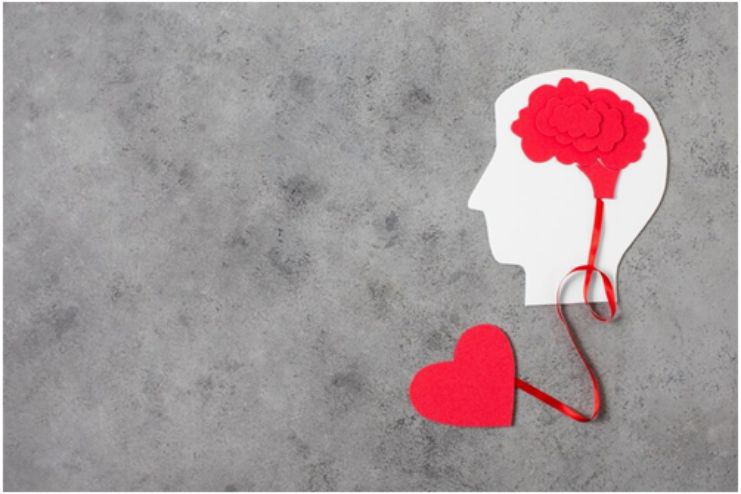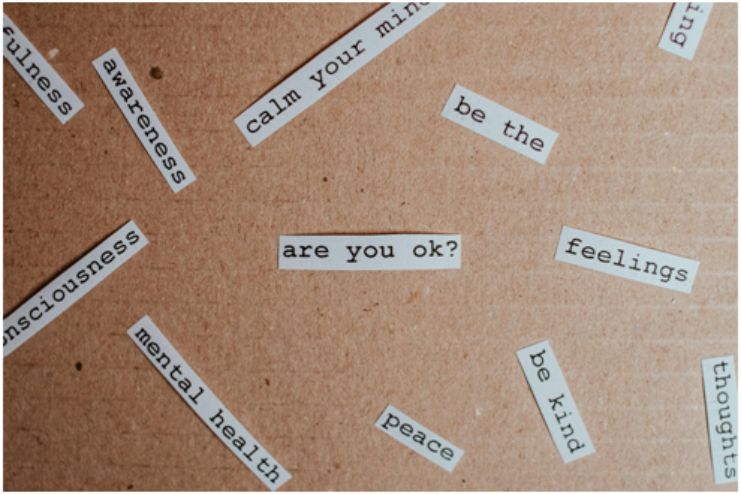AI Contribution
At HealthSpectra, we may use AI to refine grammar and structure, but every piece is shaped, checked, and approved by real people, our expert writers and editors, to ensure clarity, credibility, and care. Learn more..Affiliate Disclaimer
Some links in this article are affiliate links. We may earn a small commission if you make a purchase through these links, at no extra cost to you. We only recommend products we find useful to our readersAn empath deeply relates to the emotions and energies of those around them, often absorbing these feelings as if they were their own. They soak it all up as their own feelings because their sensitivity allows empaths to resonate deeply with compassionate connections of meaningful relationships, which makes them incredibly understanding and supportive in their relationships and social settings.
This makes them extremely sensitive to others’ emotional states, sometimes affecting their well-being. One key sign of being an empath is that it becomes difficult for them to distinguish between their emotions and those of the people they meet.
This blurs the lines between their own and othrs’ emotional boundaries, causing them to become drained, overwhelmed, or even anxious after a long time around crowds or emotionally charged people. Many find environments full of high-energy crowds or distressing events particularly draining.
Empaths also avoid consuming violent or disturbing media; such exposure leaves deep impressions as it elicits a response to their emotions.
Being an empath is not easy, but it also comes with many benefits. Empaths are often perceived as caring, thoughtful, and insightful individuals who can offer real support and understanding to others.
By being aware of their unique sensitivities and practicing self-care, empaths can keep their emotional well-being intact while continuing to nurture their extraordinary capacity for empathy.
Read More: How to Practice Empathy as a Personality Trait
Signs You Might Be an Empath

Even though there are no clinical standards to identify whether you are an empath, there are some indicators to consider:
1. Overwhelmed in Crowded Places
Do you feel overwhelmed in crowded places filled with people and their energies? You might be an extrovert empath, but crowded places physically drain you, and you might get brain fog, headaches, or feel overstimulated. All the information you pick from the crowd can overwork your nervous system, causing a mild shock.
2. Heightened Sensitivity to Emotions
Do you ever enter a room and feel a sense of tension, even without any words spoken? This happens because empaths have a heightened sensitivity to emotions around them. They can easily pick up on non-verbal cues when others do not.
3. Feel Drained after Interacting with Others
Even if you love being around people, do you feel gradually drained after prolonged interaction? This is because the emotions of others affect empaths, particularly if they are having a hard time. You need to retreat to recharge yourself and be on your own for a little while.
4. Difficulty Separating Your Feelings From Others
Do you struggle to separate your emotions from those of others in the room? An empath picks up on the feelings of people nearby and may feel a sudden heaviness in their chest, seemingly out of nowhere.
5. Strong Intuition and Ability to “Sense” Moods
Do you pick up the unsaid feelings of the people around you? Even if someone is smiling, an empath may sense something is wrong underneath. An empath can easily feel the tension between two people even if they have not said anything in front of them.
6. Attraction to Helping Roles or Careers
Do you feel called to help others and want to fix any wrongs in their lives? This may make empaths feel overburdened at times, but they are pulled to helping manage and improve situations for others. Such people make wonderful caregivers and counselors.
7. Tendency to Absorb Negative Energy Unconsciously
Do you have a strong impact when the others around you are in pain? An empath unconsciously absorbs the negative energy around them and may feel drained for days. Empaths are usually unable to watch horror movies or action dramas, as they will later feel traumatized.
The Science Behind Empathy and Energy Absorption

Empathy is deeply ingrained in our neurological framework with mirror neurons first discovered in the 1990s. These are specialized cells in the brain that fire not only when one performs an action but also when one observes someone else performing the same action.
This mirroring mechanism allows individuals to internalize and understand other people’s experiences, thus forming the basis for empathy and energy absorption. The mirror neuron system is intrinsic to social cognition, allowing it not only to imitate a movement but also to understand other’s intentions and emotions.
When an individual sees somebody else expressing a thought, such as joy or pain, the mirror neuron fires as though the person is doing it themselves and, therefore, shares an emotional experience in that moment. This neural mirroring is indispensable for effective interactions and the emergence of interpersonal connections.
Emotional intelligence, closely tied to the functioning of mirror neurons, refers to our ability to recognize, understand, and regulate emotions—both our own and others. While empathy is a component of emotional intelligence, the latter encompasses a broader skill set, including self-awareness and emotional regulation.
A well-functioning mirror neuron system enhances empathetic responses, but heightened sensitivity can pose challenges for empaths, such as emotional exhaustion or difficulty distinguishing personal emotions from those absorbed by others.
Challenges Empaths Face

Empaths deeply feel and absorb the emotions of others and often encounter unique challenges that can impact their well-being. Let’s discuss a few of them.
1. Emotional Exhaustion
One significant issue for empaths is emotional exhaustion. Constantly processing others’ emotions can drain an empath’s energy, leading to fatigue and stress.
2. Burnout
Without adequate self-care, this emotional overload can result in burnout, affecting both mental and physical health.
3. Emotional Boundaries
Empaths may struggle to distinguish between their own feelings and those of others, making it difficult to establish healthy emotional boundaries. This can lead to overcommitment, being taken advantage of, or neglecting their own needs in front of others.
4. Intense Emotions
Another common struggle of intense emotions or changes of energy is managing them.
5. Mood Swings
Empaths tend to change moods or energy levels abruptly, depending on their surrounding environment and people. These changes can be overwhelming for their daily activities.
Developing coping skills like mindfulness and grounding would help empaths better handle intense periods. Empaths must understand and relate to these aspects to lead a life of fullness and moderation. By recognizing the importance of self-care, well-set boundaries, and effective emotional control, empaths can turn their sensitivities into strengths.
Coping Strategies for Empaths

Empaths often face unique challenges due to their heightened sensitivity to others’ emotions. Implementing effective coping strategies can help maintain their personal well-being. Here are some strategies to empower empaths to manage their sensitivities and lead balanced, fulfilling lives.
1. Set Healthy Boundaries
Learn to say “no ” to protect your emotional space and prevent overwhelm. Establish clear boundaries to ensure your needs are met and prevent the exhaustion that comes from always prioritizing others over yourself. Do not force yourself to always please others.
2. Grounding Techniques
Engage in mindfulness, meditation, or yoga to prioritize yourself and manage emotional influxes to calm overwhelming emotions. These practices foster emotional balance and resilience, allowing you to handle emotional influxes with greater stability and self-awareness.
3. Energy Protection Practices
Visualize protective shields or carry grounding objects to safeguard against absorbing negative energies. For instance, imagine a shield filtering out negative emotions while allowing positive energy to flow through.
4. Time Alone
Set aside dedicated time for solitude to reconnect with your inner self and replenish emotional energy. Whether through quiet reflection or immersing yourself in nature, these moments foster renewal and clarity, essential for empaths to thrive.
5. Selective Social Interactions
Surround yourself with positive, uplifting individuals to foster supportive relationships. Limit interactions with toxic or draining personalities, focusing instead on relationships that nurture your emotional well-being and contribute to your growth.
6. Therapy or Support Groups
Seek professional guidance or join support groups to navigate empath-specific challenges effectively. These resources provide tools and community support to address challenges unique to empaths, fostering personal growth and resilience.
For more insights on managing empathy and setting healthy boundaries, you might find the following video helpful:

Benefits of Being an Empath

1. Emotional Connection
Being an empath offers numerous advantages that can enrich both personal relationships and community dynamics. One notable strength is the ability to form deep emotional connections, as empaths readily notice and tune into the emotions of others.
Understanding empathy helps them foster compassion and provide meaningful support to those in need, making them trusted confidants and friends.
2. Insightful Decisions
Empaths contribute positively within community settings through their intuitive nature, guiding insightful decisions that may be made in interpersonal interactions. They are aware of subtle changes in body language, facial expressions, and tone, which they use to detect discrepancies in communication.
3. Promote Harmony
This makes them adept at conflict resolution and promoting harmony within groups. These abilities are often associated with the traits of highly sensitive people, who are naturally attuned to emotional and environmental nuances.
4. Being Creative
Besides, deep emotional experiences often channel themselves into creative expressions, such as music, writing, or art, which enhance cultural landscapes and inspire others.
5. Perfect Caregivers
Empaths’ natural desire to help and heal makes them a precious resource in caregiving roles, where their compassion and understanding can facilitate emotional and physical healing.
Overall, the empath’s ability to connect deeply with others and their environment enables them to make significant, positive contributions to their communities, fostering empathy, creativity, and understanding.
Conclusion

Being an empath is a remarkable strength that, if managed well, leads to deeply fulfilling personal and professional lives. Empaths have a special ability to connect with others in ways that build compassion, understanding, and healing.
While it is true that the challenges of heightened sensitivity sometimes feel overwhelming, they can be addressed effectively by empathizing with self-awareness and intentional practices.
Prioritizing self-care for highly sensitive people is essential for maintaining emotional balance and avoiding burnout. By setting healthy boundaries, practicing mindfulness, and dedicating time to recharge, empaths can protect their well-being while positively impacting their communities.
Remember, your empathy is your superpower—use it wisely and nurture yourself. Unlock your sensitivity’s true potential by embracing it.
References
- https://psychcentral.com/blog/stop-absorbing-other-peoples-emotions
- https://medium.com/@nicole_drummond/15-signs-youre-an-empath-bbff3d1b2e06
- https://health.clevelandclinic.org/what-is-an-empath-signs-you-are-one
- https://keirbradycounseling.com/empath-and-absorbing-other-peoples-emotions/
- https://psychcentral.com/health/what-is-an-empath
- https://www.sciencedirect.com/topics/psychology/mirror-neuron
- https://positivepsychology.com/mirror-neurons/
- https://www.counsellor.ie/empaths-challenges/
- https://highlysensitiverefuge.com/common-empath-struggles/
- https://courageousandmindful.com/12-self-care-coping-skills-for-empaths-or-hsp-to-prevent-burn-out/
- https://keirbradycounseling.com/empath-benefits/
- https://medium.com/swlh/perks-of-being-an-empath-d5d590808c5
In this Article



















